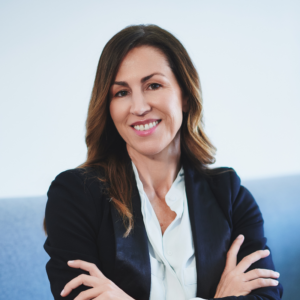I know it is a statement that steers between being annoying, disturbing and even hints of impertinence, but admittedly I have always liked this direct, clear banking expression—the contracting party’s exceptions clause, “Past performance is no guarantee for future performance.”
A caveat written in small italics, which today nevertheless shines bright like neon. The message is clear: do not be trusting. What worked yesterday doesn’t have to work tomorrow. And if you nod off—whoever rests on their laurels risks falling asleep earlier and deeper —you’ll vanish.
The paradox of success is that what has brought us here may be stopping us from getting there.
A powerful study by The Institute for the Future on how digital transformation will affect us warns the same thing: what you know now may not be relevant in 2030. The advance in technology will render much of the knowledge we have today obsolete. What’s already obsolete is how we understand what work is and that there are new ways to carry it out.
Well understood from corporate angle, this is sometimes hard to adopt internally when we take it down to the people who form part of the company. While I will always defend that in life everything is a question of mindset and not age, it so happens that professionals who have developed careers over a long time at the same place (amassing and recording years of doing things in a similar way), may have greater reticence to change, to break the habit of how work is done. If to seniority we add holding job posts as executives, managers, or being people with decision-making powers, what sometimes becomes hard is to simply listen, as well as receive and accept feedback on the need for change. Perhaps it’s because so far, we’ve done well, and we believe there’s no need to change anything or maybe because we’re not used to it. If we haven’t made it a habit to listen (active listening!) to other proposals, other people (including bottom-up), other advice … we forget to cultivate another vital habit, to ask.
I point this out because the attitude of “not defending” in agile learning processes that an organization needs is fundamental. When we enter a state of self-preservation and try to defend the as-is status quo, we close ourselves to what could be. To operate without defending you must understand other people’s comments as a gift (of course, that’s if they explain them well… so let’s learn storytelling please, put more emotion and empathy in communication). It will always be uncomfortable and irritating to be told something we don’t want to hear, but people who remain closed or on the defensive when challenged or when they receive critical comments are much more limited in agile learning. Whoever seeks feedback and process it are better able to adapt to understanding and solving new situations and problems (problem solvers).
We all need feedback to find out where we are and where we need to go, as well as to gauge our progress. If we don’t truly do this, we are really living at the expense of others in the past. On what it was. There is very compelling data that I’d like to share as food for thought: according to research by Ulrike Malmendier and Geoffrey Tate, CEOs who became superstars after receiving key awards (granted by Forbes, Time / CNN, Business Week etc.) underperformed between 15 and 20% less than the other comparable CEOs over three years after receiving the award. Wow. At some point along the path they side-lined humble leadership which is open to learning. “Have I gotten to be 80 years old in order to always think the same thing? No, I strive to think something different, something new every day,” as Wolfgang Goethe said. So, the key question we must ask (ourselves) relentlessly is: “How can I do better?”
If I apply this typically knowmad trait embodied by “permanent beta” (to be aware that there is always a better version of myself that I can and should aspire to), I put it into practice through constant lifelong learning and supplement it with the experience—and of course, excellence—of the senior worker, I’m describing the figure of the silver surfer: a professional who is better prepared for change and constant evolution, who will easily integrate into new agile business organizational models in which we will all work and in which feedback is a constant!
Just as the great management expert Peter Drucker says: “The leader of the past was a person who knew how to tell. The leader of the future will be a person who knows how to ask”.






